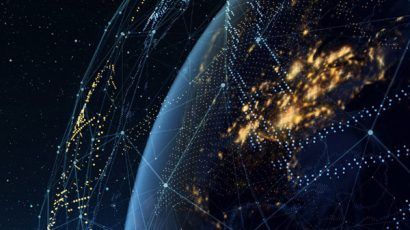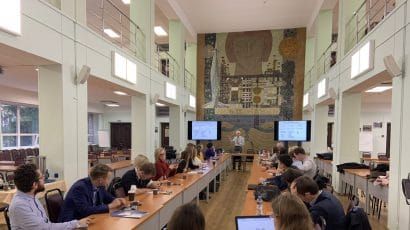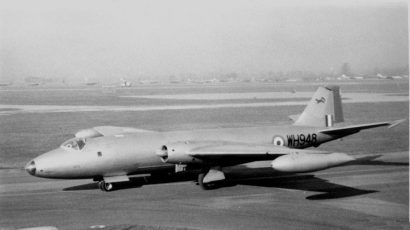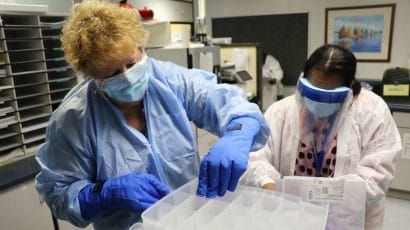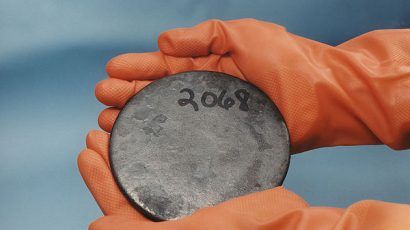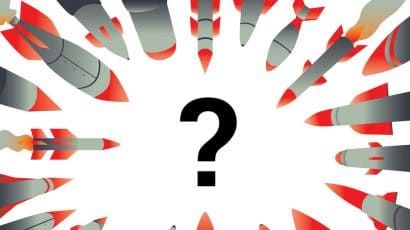Search results for nuclear terrorism
In support of the Megatons to Megawatts program
"There will never be a 100 percent guarantee of security for our people, the economy, and our society. We must resist the urge to seek total security--it is not achievable and drains our attention from those things that can be accomplished." --Gilmore Commission, December 2003
What ‘Oppenheimer’ can teach today’s scientists
'Oppenheimer' shows scientists cannot turn back to a world in which research is pure and unencumbered with its consequences. They need to take part in the public arena, a member of the National Academies of Sciences, Engineering, and Medicine argues.
Interview: Siegfried Hecker on remembering history while planning the future of nuclear arms control
In this interview, editor John Mecklin asks renowned nuclear policy expert Siegfried Hecker to suggest concrete actions world leaders can take to reduce nuclear risk. Hecker explains why attending to history is vital to success in this arena.
Krypton 85 monitoring: Solution to clandestine reprocessing
One of the many obstacles to reaching an arms-control agreement with North Korea revolves around the risk that undeclared, clandestine nuclear facilities might exist in that country, which—if they remain undetected—would allow the Kim Jong-un regime to maintain and continue its military nuclear ambitions. It is therefore very important that any agreed-upon denuclearization of the … Continued
Deconstructing the Iranian challenge
Long-awaited talks between Iran and six major powers (Britain, China, France, Germany, Russia, and the United States) start on Thursday, October 1, in Geneva. Bolstered by last week's revelation of a enrichment facility hidden under a mountain near the Iranian city of Qom, Western officials reportedly will press Iran to commit to the Additional Protocol, an agreement that allows wide-ranging access for international inspectors.
Bring back the Office of Technology Assessment
During an April 2007 speech at a Princeton University colloquium titled, "From Passion to Politics: What Moves People to Take Action," New York State Gov. Eliot Spitzer admitted that the world changes more by technology than by politics. He added that emotions can obscure facts and that political discourse requires an agreed-upon set of facts before policy can be rationally discussed. Unfortunately, politicizing scientific facts has never been more prevalent.
Keeping tabs on nuclear security commitments
How can gift-basket diplomacy be preserved beyond the 2016 Nuclear Security Summit?
A Harvard professor who once helped secure Soviet nukes is now grading the COVID-19 vaccine rollout
Harvard professor Graham Allison once helped secure nuclear missiles in the former Soviet Union, now he's grading states on how well they're vaccinating people against COVID-19. The famed analyst of great power competition is taking on a new (great) challenge.
Why the security of nuclear materials should be focus of US-Russia nuclear relations
The Trump administration’s decision to withdraw from the INF Treaty following years of Russian noncompliance is the most recent upset in a series of escalating tensions between the two superpowers. The political status of Ukraine and Crimea, Russian disinformation campaigns in the 2016 election cycle, and continued uncertainty surrounding the extension of New START have … Continued
An existential discussion: What is the probability of nuclear war?
“Father of the internet” Vinton Cerf and “father of public key cryptography” Martin Hellman agree that the US needs to understand the risk of nuclear war. However, they disagree about the best means for understanding that risk. In side-by-side opinion pieces, Cerf and Hellman present their opposing views.
Millennials: The next great opportunity in nuclear security
Growing up in the post-Cold War era has some advantages: Millennials aren’t wedded to old theories about nuclear security, and are more engaged with their peers around the world.
Australia’s nuclear dilemma
"What will make a focus on nuclear security a permanent feature of what we do?" asked Australian Prime Minister Julia Gillard at the 2012 Nuclear Security Summit held in Seoul in late March. Experts agree that the 2014 summit must go further in securing nuclear materials from disasters and, most important, terrorist threats -- but agreement on precisely how to do this is harder to come by. In this regard, Australia has much to offer.
Nuclear war, public health, the COVID-19 epidemic: Lessons for prevention, preparation, mitigation, and education
Dealing with a pandemic is trivial compared to dealing with the aftermath of a nuclear incident or attack. Thermal injury, followed by radiation illness, not to mention the disruption to society and the impact on the environment, would dwarf the effect of COVID-19.
China worries about Japanese plutonium stocks
Some Chinese policymakers question whether Japanese under-reporting of plutonium stocks was an honest mistake—or a deliberate effort at concealment
A multinational fuel consortium: Obstacles, options, and ways forward
The harnessing of the atom to develop a nuclear bomb 70 years ago unleashed a magnitude of terrifying destruction the world had never witnessed before. The same atomic power also resulted in an "atoms for peace" program, which gave the world nuclear power as a clean source of energy and benefited humanity in the development of nuclear medicine, agriculture, and sciences.
Yukiya Amano: One year in
The mission of the International Atomic Energy Agency (IAEA) is to facilitate peaceful uses of the atom while ensuring that its nuclear assistance is not used for military purposes -- a challenging mandate that in its implementation introduces both significant benefits and risks to humankind. On one hand the agency helps member states gain access to peaceful nuclear technology; on the other, preventing nuclear proliferation remains one of its crucial activities.
Right-Sizing the “Loose Nukes” Security Budget: Part 2
In Part 1 of this article, the recent and historical budgets for securing vulnerable nuclear materials around the globe were analyzed. Recommendations were also made for increasing the budgets for the key National Nuclear Security Administration (NNSA) programs, including the International Nuclear Material Protection Cooperation (INMPC) and Global Threat Reduction Initiative (GTRI) programs, in fiscal year (FY) 2010 and then through 2014.
Joseph Rotblat’s would-be advice to the new president
November 4 marks the centenary of the birth of Nobel laureate Joseph Rotblat, the only scientist to walk away from the Manhattan Project on moral grounds and a man who held determined views on the kind of world we should try to create. He was an ardent advocate for dialogue across political divides, the elimination of nuclear weapons, the need ultimately for a world without war, and the social responsibility of scientists.
